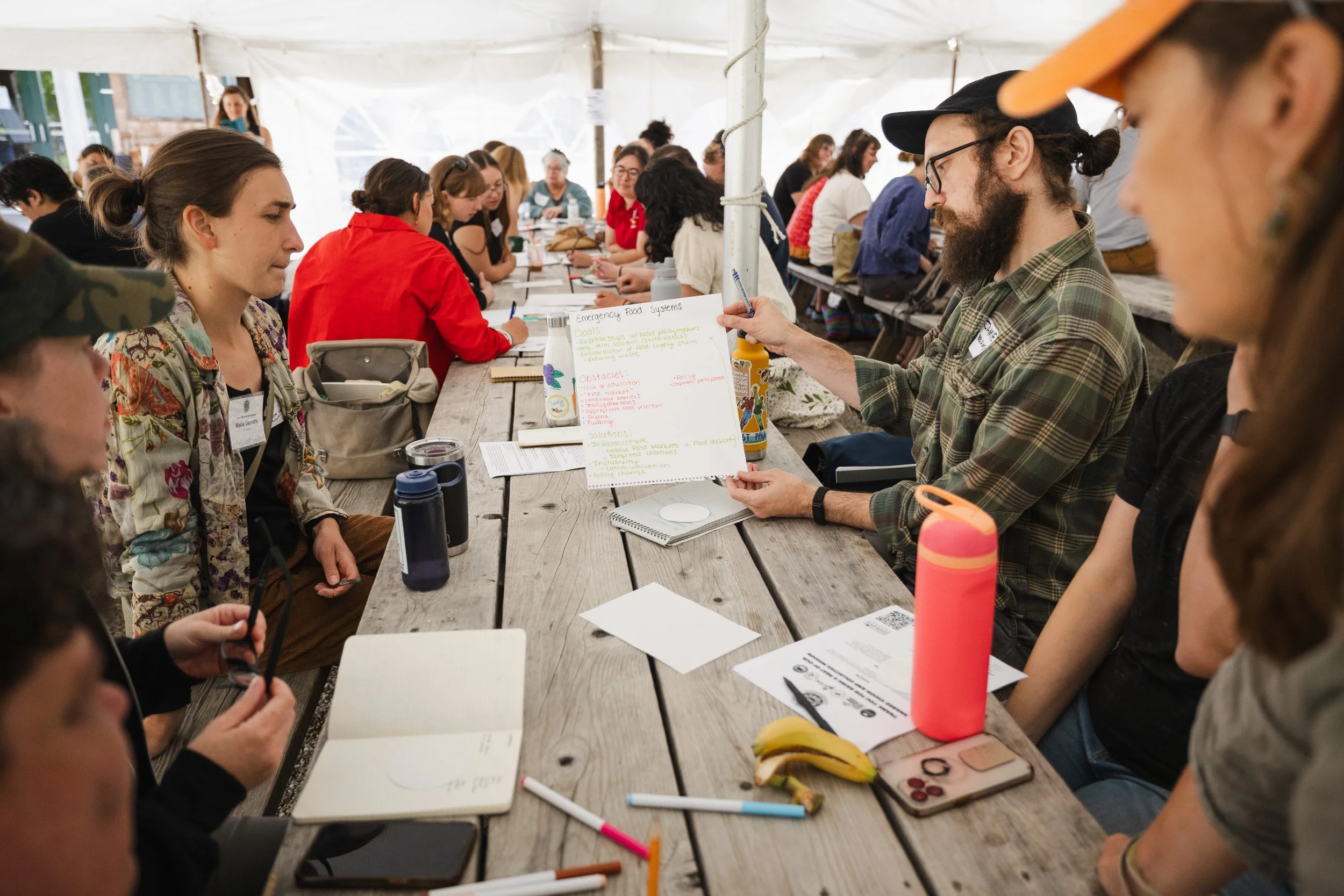Convergence Work Groups
Workgroups are cross-sector collaborative projects that advance priorities identified by the Convergence network and which have energy to move them forward. They are organized to leverage resources and work proactively on complex issues impacting food access, climate change mitigation and shifting power in Maine’s food system to center BIPoC, youth, and others with lived experience of our system’s inequities.

A great way to help support our working groups is a monthly donation! Our working groups are cross-sector collaborative projects that advance priorities identified by the Convergence network and which have energy to move them forward.
-

Food Processing Infrastructure Work Group
Contact: Alida
a.farrell@hccame.org
The Processing Work Group convenes monthly to identify processing-related interventions that generate high impact shifts towards getting more local, culturally nourishing food to institutional and other markets. Learn about and explore projects and ideas, such as the Local Food Switchboard Project, Maine Marinara Collaborative (that have opened avenues for immigrant and other BIPOC farm produce to get into schools, hospitals, and Dept. of Corrections facilities) and tools, such as Forward Contracting.
Attend to keep up to date on upcoming processing-related grants and potential collaborations.
-

Maine Food Narratives Work Group
Contact: Lauren
comm.mainefoodconvergence@gmail.com
The Maine Food Narratives Work Group is developing and creating on the ground projects rooted in narrative change. After identifying that a shared communications group would support our statewide community during the 2023 Spring Convergence the idea was put into gear. One of the goals of the group is to take the blame off of individuals and place it on our dysfunctional systems. Currently, the group is working on a Food Sovereignty Zine project, expected to be out at the end of 2025.
-

Climate and Food Systems Work Group
Contact: Elise Hartill
eliseh@mycj.org
The food system plays a major role in our climate. There is an expressed need to organize so that climate becomes inextricably woven into the fabric of our food system policies, investments, and on-the-ground actions.
The first step towards this shift is to build relationships among those who are taking action in food & climate efforts. As we build these relationships, we will explore where we can leverage the most change and prepare to take collective action.
November 12, 11AM-12:30PM
A Day in the Life of Maine Processors and Aggregators
December 9, 11AM-12:30PM
Procuring and Processing Surplus & Imperfect Crops
February 10, 11AM-12:30PM
Cold Storage
March 10, 11AM-12:30PM
Lessons from Maine's Seafood Supply Chain
April 14, 11AM-12:30PM
Food Hubs in Maine
May 12, 11AM-12:30PM
State & Regional Perspectives on Food System Infrastructure

